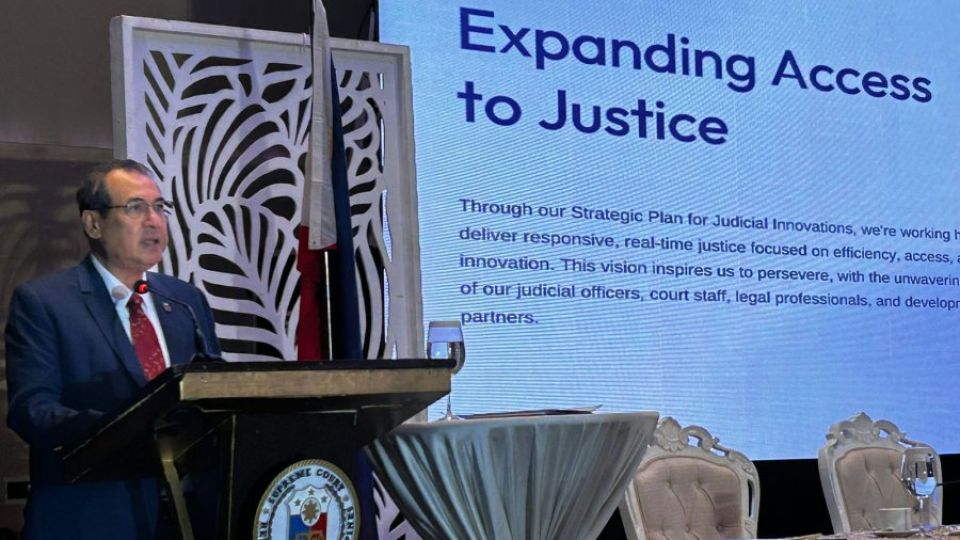October 22, 2024
MANILA – The Supreme Court (SC) has started pilot-testing artificial intelligence (AI) as part of its judicial innovation but assured that they are engaging experts to assist in machine language.
“The Supreme Court is capitalizing on AI-enabled tools to enhance court performance, notably in voice-to-text transcription and legal research,” Chief Justice Alexander Gesmundo said on the 2nd anniversary of the Strategic Plan for Judicial Innovations (SPJI).
Gesmundo said that currently, there is a pilot testing of AI software, SCRIPTIX (voice-to-text), in select first and second-level courts.
“With a cost-effective measure, we hope to address the shortage in court stenographers,” Gesmundo pointed out.
He added that several offices of the Supreme Court have also started testing AI-enabled platforms to optimize legal research.
“This will decrease the time spent on preliminary research and allow more time for analysis,” Gesmundo said.
Senior Associate Justice Marvic Leonen also acknowledged the importance of AI in reshaping the judicial landscape.
“In this life, we are very careful knowing that the wrong kind of domain, the wrong kind of large language model, can allow the AI to hallucinate, which would be very dangerous. Here, we will be engaging experts to assist in machine language so that the data that comes out of artificial intelligence will be very accurate,” Leonen said.
Gesmundo, earlier said AI will only support judicial efficiency but never replace human elements.
“Courts should still be populated with human judges if we are to expect that empathy and compassion would still go into the consideration of granting equitable remedies,” he said during the 19th Conference of Chief Justices of Asia and the Pacific in Kuala Lumpur, Malaysia last Oct. 12.


